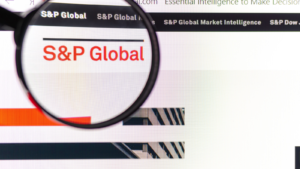Cash Burn: 3 Dividend Aristocrats to Dump for Buyback Plays
Although dividend investing has plenty of research backing its efficacy, it’s a slow burn.
Further, it may incur high opportunity costs during broad-market rallies, such as what we saw during the bull in the Nasdaq last year. If one seeks capital appreciation potential, plan to sell some Dividend Aristocrats. Rather, invest in companies pursuing aggressive buyback activities, which could lead to significant short-term capital gains.
The Dividend Aristocrats to sell in this list are marked with issues. Even well-established companies can see their competitive advantages erode over time. Closely examining the strength and durability of a company’s moat is crucial.
In these case of these slow burners, one could seek better opportunities elsewhere. A prime example is investing in a buyback ETF like the Invesco BuyBack Achievers ETF (NASDAQ:PKW), which has returned 61.76% over the past five years.
So, let’s explore three dividend aristocrats to sell.
Archer Daniels Midland (ADM)

A major player in the agricultural industry, Archer Daniels Midland (NYSE:ADM) is known for processing grains and other products. Despite its significant role in the market, the company reported a decrease in earnings in recent quarters.
Additionally, its dividend yield of 3.31% and dividend growth rate of 12.12% may be too low for both income and dividend growth investors. This fails to cater to either type of investors who typically buy dividend aristocrats.
Furthermore, last year, The Nutrition segment’s operating profit significantly decreased by 36% compared to the previous year. Also, the company experienced operational issues, such as unplanned downtime, which contributed to a decline in profitability.
And, ADM has set its guidance with adjusted earnings per share projected to range from $5.25 to $6.25. That marks an 18% decrease at the midpoint from 2023. This outlook reflects moderating margin conditions and higher costs.
It might be worth considering trading in shares of ADM into a buyback ETF or a firm that’s pursuing an aggressive buyback strategy.
S&P Global (SPGI)

S&P Global (NYSE:SPGI) provides financial information and analytics. It has a long history of dividend growth but faced mixed financial results recently. While the company’s revenue has grown, it missed earnings estimates slightly.
Also, SPGI offers investors only a 0.76% shareholder yield, which is hampered by its low dividend yield of just 0.89% and dividend growth rate of 4.64%. This is particularly weak, given it has 51 years of consecutive growth under its belt.
Some factors that investors may appreciate though is that it has returned 85.94% in capital appreciation over five years. But shares currently trade at a high price of $409.56. While the high stock price is not inherently a bad thing, it does limit one’s flexibility to secure more yield through options strategies such as covered calls and cash covered puts, which limits its income potential.
Despite higher interest rates, SPGI anticipates a rebound in capital market activities, supported by more resilient global economic conditions than previously expected.
Therefore, SPGI operates between a mix of a high-performing tech stock while also being robust. However, it may not offer the kinds of income potential that investors seek.
Medtronic (MDT)

Lastly, Medtronic (NYSE:MDT) specializes in medical technologies and has been a reliable dividend payer. However, the company faces challenges such as pricing pressures and competition, which might impact its financial stability.
MDT’s dividend is the most speculative of the three, with a high payout ratio of 87.90%. Adding to the bear case is that its dividend yield is just 3.44% at the time of writing. Furthermore, its dividend growth rate of 1.47% leaves much to be desired.
MDT’s stock price has fallen 8.15% over the past five years, and trades near its five-yearly lows. It reported Q3 revenue for FY24 at $8.89 billion, marking a 4.7% increase on a reported basis and a 4.6% increase on an organic basis. The company’s GAAP diluted earnings per share (EPS) for the same quarter was $0.99, with a non-GAAP diluted EPS of $1.30.
Also, analysts predict a rebound for its EPS this year, with forecasts it could climb over 80% to 5.25. However, this is speculative and very optimistic. So this makes it one of those dividend aristocrats to sell for investors who like to play it safe.
On the date of publication, Matthew Farley did not have (either directly or indirectly) any positions in the securities mentioned in this article. The opinions expressed are those of the writer, subject to the InvestorPlace.com Publishing Guidelines.

